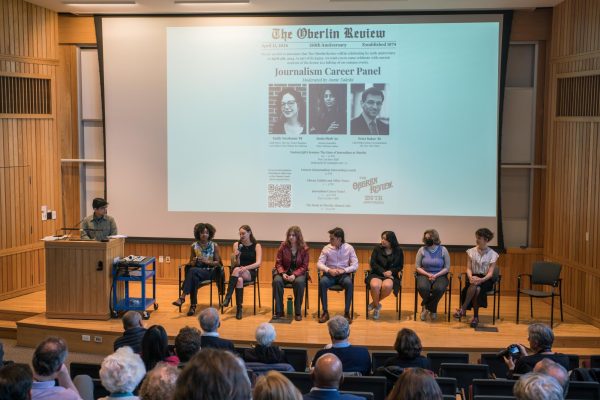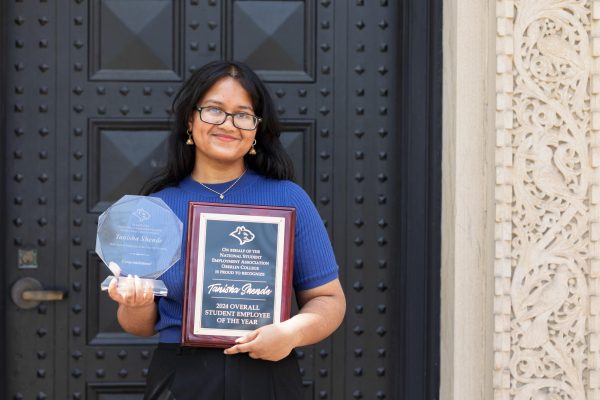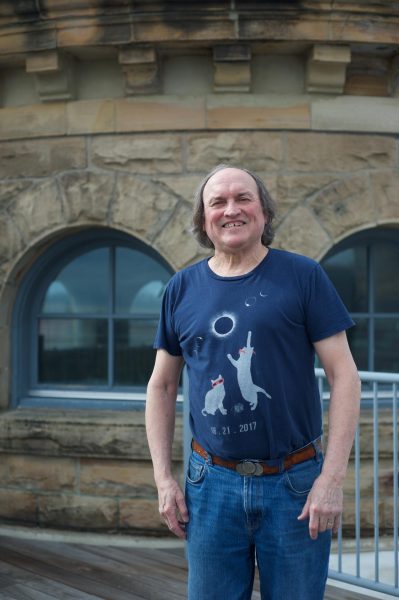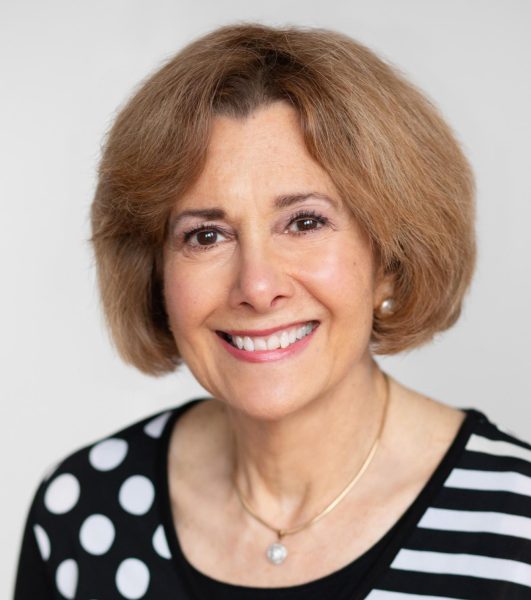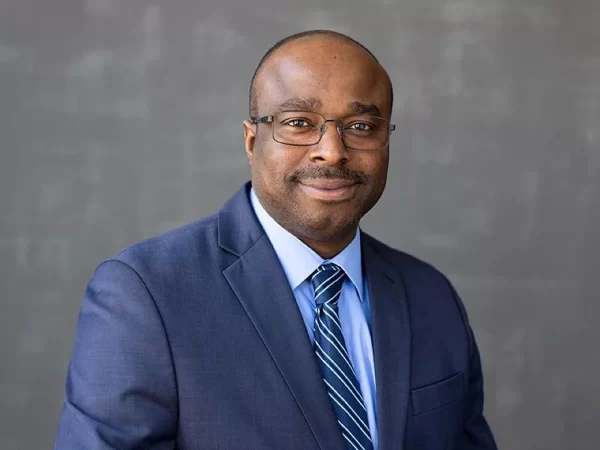Lucien Ferguson: Drinan Scholar at Boston College Law School
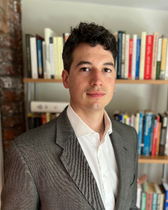
Lucien Ferguson
Lucien Ferguson, OC ’13, was recently selected for the 2023–2025 Drinan Scholars Visiting Assistant Professorship at Boston College Law School. He will gain teaching experience as well as experience in civil rights law. Ferguson highlights African-American political thought and explores the intersections of civil rights and activism within the legal system.
This interview has been edited for length and clarity.
Could you expand on the goal of the Drinan Scholars Visiting Assistant Professorship?
In legal academia, one of the main pathways to becoming a law professor is to do a legal fellowship or visiting assistant professorship. There’s a number of them throughout the country and they are extremely competitive. They offer you a chance to develop your research and teaching amongst a community of legal scholars who are invested in helping you secure a tenure track job. The Drinan Scholars Visiting Assistant Professorship is a two-year position at Boston College Law School. I will be teaching one course each semester to law students, and the course I’m teaching in the fall is called “Reimagining the Reconstruction Constitution.” It’s a course that I’m designing and very excited about. While at Boston College Law School, I will also turn some of my dissertation research into law review articles, which will be part of my future job market application.
So, over the course of the two years, I’m hopefully going to receive some helpful mentorship, I’m teaching, and I’m developing my scholarship. I will also add that the Drinan Scholars Visiting Assistant Professorship is for scholars who study law and race. I was really honored to get this one in particular because of the focus. The program is also unique because it accepts only one visiting assistant professor each year, which can result in more opportunities for individualized attention and support.
Your dissertation is titled “The Spirit of Caste: Recasting the History of Civil Rights.” Could you talk more on this and speak to how it relates to your professorship?
The project is looking at civil rights history from the perspective of caste, which, in the U.S. context, means a system of racialized and gendered impediments to social mobility. Many academics and people generally speaking don’t tend to think of the U.S. as a caste system. But, there’s a really important theme of caste in 19th century Black political thought. These are thinkers that critiqued the U.S. as a caste system. That is, they explicitly developed a critical understanding of the U.S. as a caste society and theorized the law as a means to abolish caste. A key part of what participants in the abolitionist, women’s rights, and civil rights movements were trying to do is think about how law — but also a much wider range of strategies and tactics — can be used in the service of racial uplift through the abolition of caste. Some of the central thinkers I am studying include Frederick Douglass, Mary Ann Shadd Cary, Anna Julia Cooper, Thurgood Marshall, and Ida B. Wells. It’s a really broad conversation and broad range of figures that are understanding the U.S. in terms of caste and thinking of the meaning of civil rights as protections against caste.
As the 2023–2025 Drinan Visiting Assistant Professor at BC Law, I’m going to be connecting this research to contemporary legal conversations by developing a series of law review articles that look at the 14th and 13th Amendments and also areas of property law from the perspective that these figures bring.
Did this interest with caste in the legal system stem from your education in Oberlin?
Oberlin was very important for interest in these topics for many reasons, and I didn’t even know about the really rich abolitionist and civil rights Oberlin history before getting to Oberlin. But my first-year seminar was with Associate Professor of English Gillian Johns and she taught English and African American literature.
She taught a class called “The Blues Detective” that brought together Black political thought and theory in a way I found really exciting, so I often think back on that class.
While at Oberlin, I also fell in love with political theory, in part because I cultivated close relationships with Harlan Wilson and Sonia Kruks, who are now emeriti. I also think that just by being at Oberlin you become aware of important abolitionist and civil rights history, and I was really affected by the radical student culture and politics going on around campus during my time there.
As a white scholar researching civil rights and activism centered on Black voices, how do you navigate the narratives of Black scholars respectfully?
This is a very important question for me and one I think about quite often. As a white scholar studying the work of Black intellectuals, there are inevitably limitations to my ability to understand their lived experiences. Thus, it is imperative for me to be as reflexive as possible and to constantly examine and acknowledge the assumptions I bring to my research. One way I do so is by staying as close as possible to the texts, the historical archive, and the work of prominent Black scholars so that I can preserve the voice and intentions of the figures I am studying as much as possible. Additionally, a crucial goal for me as a scholar is to help us overcome the misconception that Black voices have always been marginal in the development of our legal system. What I try to do in my work is show how the intellectual contributions of Black individuals and Black-led movements have shaped our legal traditions and how they can help us navigate major legal and political challenges today.
How does it feel to earn this professorship at such an early point of your career?
I am just overjoyed and so excited! It means so much to me that I can pursue this kind of career and life direction, which has been my dream and aspiration for a long time. I couldn’t have been happier to get this opportunity. My hope for my time at Boston College Law School is to establish my first step into legal academia as a scholar and as a teacher. I think the opportunity to bring some of my teaching experiences from the past to teaching law students at Boston College is one of the really exciting aspects of the program. The other very exciting aspect of it is that there are truly amazing professors at Boston College Law School, and so I really can’t wait to just have conversations with them that will be important for my work and future direction as a scholar. It feels like my next step after graduate school — a big turning point — and I’m really happy about it.


